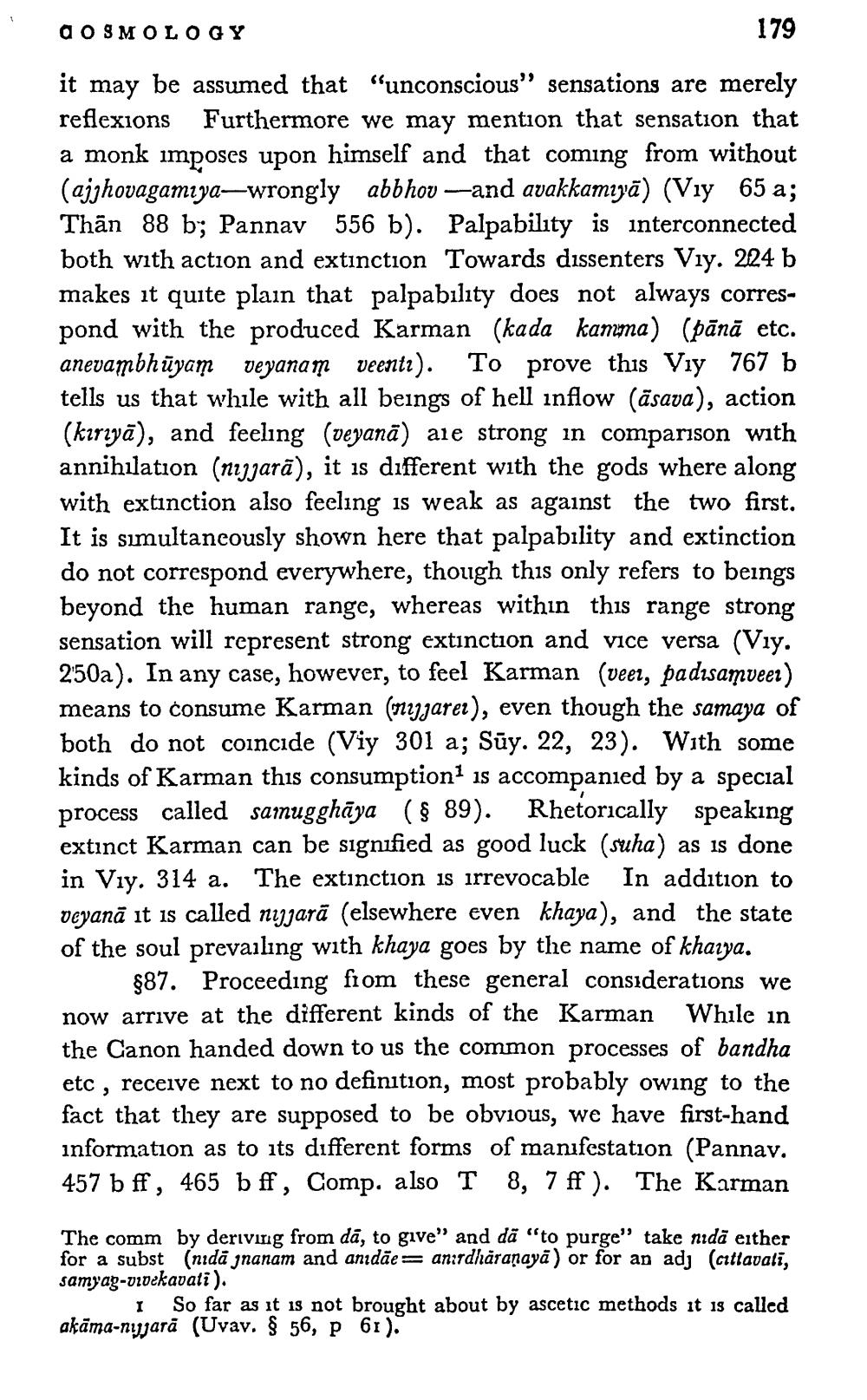________________
OSMOLOGY
179
it may be assumed that "unconscious" sensations are merely reflexions Furthermore we may mention that sensation that a monk imposes upon himself and that coming from without (ajjhovagamiya—wrongly abbhov —and avakkamıyā) (V1y 65 a; Thân 88 b; Pannav 556 b). Palpability is interconnected both with action and extinction Towards dissenters Viy. 224 b makes it quite plain that palpability does not always correspond with the produced Karman (kada kamma) (pānā etc. anevambhūyam veyanam veentz). To prove this Viy 767 b tells us that while with all beings of hell inflow (āsava), action (kırıyā), and feeling (veyanā) are strong in comparison with annihilation (nıyjarā), it is different with the gods where along with extinction also feeling is weak as against the two first. It is simultaneously shown here that palpability and extinction do not correspond everywhere, though this only refers to beings beyond the human range, whereas within this range strong sensation will represent strong extinction and vice versa (Viy. 250a). In any case, however, to feel Karman (veer, padisamveer) means to consume Karman (migjarer), even though the samaya of both do not coincide (Viy 301 a; Sūy. 22, 23). With some kinds of Karman this consumption is accompanied by a special process called samugghāya ( § 89). Rhetorically speaking extinct Karman can be signified as good luck (suha) as is done in Viy. 314 a. The extinction is irrevocable In addition to veyanā it is called nijjarā (elsewhere even khaya), and the state of the soul prevailing with khaya goes by the name of kharya.
$87. Proceeding from these general considerations we now arrive at the different kinds of the Karman While in the Canon handed down to us the common processes of bandha etc , receive next to no definition, most probably owing to the fact that they are supposed to be obvious, we have first-hand information as to its different forms of manifestation (Pannav. 457 b ff, 465 bff, Comp. also T 8, 7 ff). The Karman
The comm by deriving from dā, to give" and dä "to purge" take ndā either for a subst (nidā jnanam and anıdāe = anardharanaya) or for an adj (attavali, samyag-videkavati).
I So far as it is not brought about by ascetic methods it is called akāma-nyjară (Uvav. § 56, p 61).




